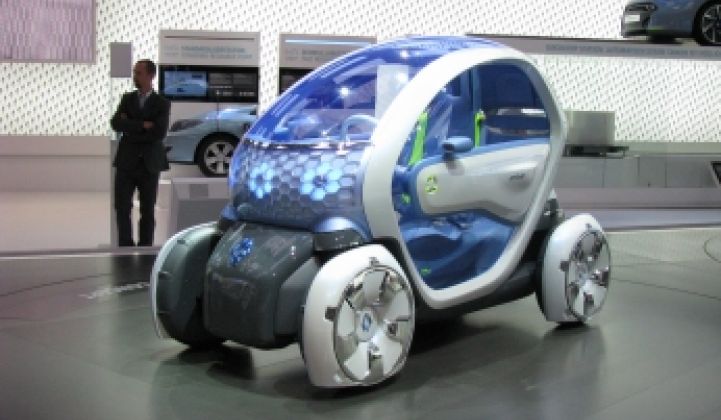FRANKFURT, Germany -- Electric cars are coming, whether you like it or not, says Renault CEO Carlos Ghosn.
Ghosn showed off four all-electric cars coming to the market in the next three to four years at the International Auto Show taking place this week in Frankfurt. The four are designed for city driving and will employ the same basic battery technology that will be used in the Nissan Leaf when it is released next year.
Electrics are a big part of the revival strategy at the Renault-Nissan alliance. Ghosn asserted that all-electrics will constitute at least 10 percent of its total sales by 2020. In contrast, when introducting their own electric vehicle that will arrive in 2013, Volkswagen execs said electric cars will only constitute 1.5 percent to 2 percent of global sales from all manufacturers by 2020. Most everyone else falls between these poles. The alliance plans to invest at least $4 billion into electric car research.
The goal, ideally, will be to release cars that will cost about the same as an equivalent diesel car in the European market. This price does not include the price of batteries, but the alliance is trying to lower the price of batteries so that the pack, along with the electricity consumed, will cost about the same if a consumer bought gas and had to get his or her car serviced over the same time period.
To this end, Renault and Nissan are heavily emphasizing all-electrics rather than hybrids.
"Our world is facing an environmental challenge," he said. "The solution needs to be more than step-by-step innovations. Electric vehicles should not be the privilege of the few."
"No longer will the world have to adjust to the car industry," he added.
So what are the cars?
First Ghosn showed off the Twizy Z.E. (ZE stands for Zero Emission.) It looks like something Polly Pocket might drive (see picture below). It will go 100 kilometers on a charge and take about four hours to charge on a standard plug. A production schedule will be announced in the second half of 2011. Despite the lack of a firm date, other Renault execs confirmed it will come to market. It also is an original design and was not cribbed from the Pivo, an earlier Nissan prototype.
Next up was the Zoe Z.E., a four-seater sedan that will go 160 kilometers on a charge, but a full-charge will take eight hours to complete. The Zoe Z.E. will be launched in the middle of 2012. One snazzy feature it has are the gel packs on the front and back that absorb force from light collisions. An electric version of the Fluence, a larger sedan, hits in the first half of 2011. The first sales will be in Israel and the car will be sold in conjunction with Better Place, the battery swapping company. Swapping will take three minutes, Ghosn added.
And then there is the Kangoo Z.E., a delivery vehicle. Like the Zoe and Fluence, it will go 160 kilometers on a charge and take about eight hours on a standard plug to fully charge. Fast chargers will be able to charge the battery to 80 percent capacity in 30 minutes.
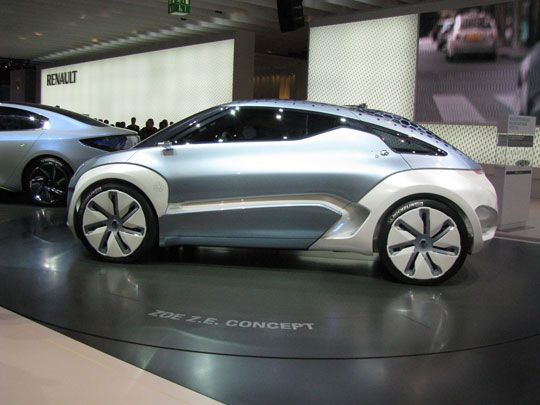
The Zoe. It's got gel packs on its front and back. I love my lady humps.
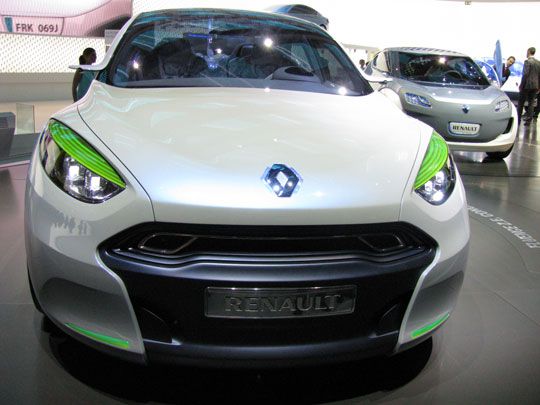
The all-electric Fluence. It will be sold in Israel and promoted in conjunction with Better Place. Hats off to the Renault, by the way. It's the only company I know to serve champagne at an 11:30 a.m. press conference.
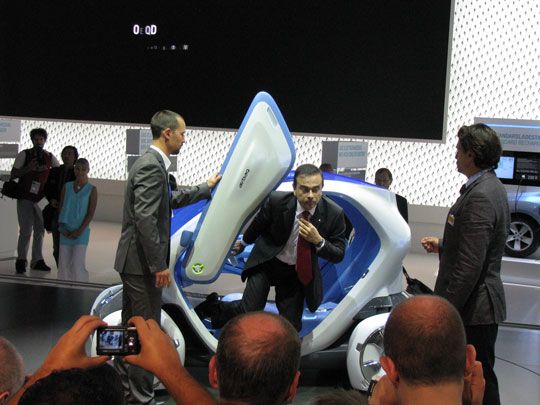
Carlos Ghosn escaping from the clutches of Twizy. I'm convinced my eight-year old has a toy version of this.
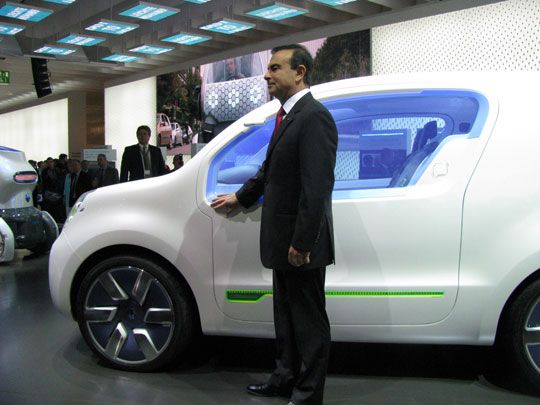
Anyone order a pizza? Ghosn shows off the Kangoo delivery vehicle.
